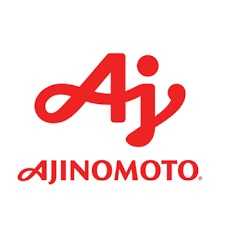TOKYO, Japan – As a part of its commitment to the procurement of sustainable coffee beans, Ajinomoto AGF, Inc (“AGF”) is pleased to announce the release of new product packaging marked with 4C certification logo for its 39 items of two brands of “Blendy” Stick Series and “Blendy” “Café Latory” Stick Series.
“We at Ajinomoto AGF are grateful to 4C for its support to our sustainable commitment. In the procurement of coffee beans, AGF aims at sustainable procurement with careful attention to the global environment, attainment of a safe and secure labor environment, approaches to agricultural productivity improvement, and economic sufficiency. In order to accomplish our aim, we have procured 4C coffee beans since 2013 through the established sustainable, trustworthy, and fair coffee supply chains of 4C on its strict criteria, – says Hideaki Shinada, President & Representative Director of AGF.
“Receiving support from 4C, we introduce the 4C certification mark into our new product packaging for our flagship products of stick coffee, “Blendy” Stick Series and “Blendy” “Café Latory” Stick Series, to dedicate ourselves more to sustainable coffee bean procurement through our business activities. By introducing the 4C certification mark this way, we aim not only to consolidate our sustainable engagement with 4C but also to facilitate ethical consumption and enhancement of consumers’ awareness of environmental concerns in Japan.“
“4C is proud to support Ajinomoto AGF’s sustainability commitment. We invested a lot of effort to be where we are now: a comprehensive and reliable standard covering social, environmental, and economic sustainability criteria, as confirmed by independent benchmark assessments. We continue challenging ourselves to improve our certification system and the implementation of its sustainability requirements. The increased visibility of 4C on the Japanese market is an important driver for us to continue moving forward on our pathway,” – Norbert Schmitz, Managing Director of 4C.
This step is not only important for the development of the 4C certification but also increasing consumer awareness on social and environmental issues in the coffee sector. 4C applies strict criteria to establish sustainable, trustworthy, and fair coffee supply chains.
The 4C standard ensures that coffee cultivation is not contributing to deforestation and reduction of biodiversity, that good agricultural practices and the protection of soil, water, and the air are applied, that human, labour, and land rights are respected and that farmers are sufficiently trained to increase productivity and profitability. 4C sustainability requirements are reflected in the 4C Code of Conduct developed in a transparent and inclusive multi-stakeholder process.
About 4C
4C is the largest certification system for the sustainable cultivation and processing of coffee. 4C coffee is produced in 24 countries by more than 400.000 farmers. This covers a total green coffee production of 26,8 million bags (60 kg) on 970 thousand hectares of farm area.[1] Independent third-party audits, conducted by 23 certification bodies cooperating with 4C, ensure farmer compliance with the sustainability criteria of the 4C standard. More information under www.4c-services.org.
[1] Year of reference: 2019.















